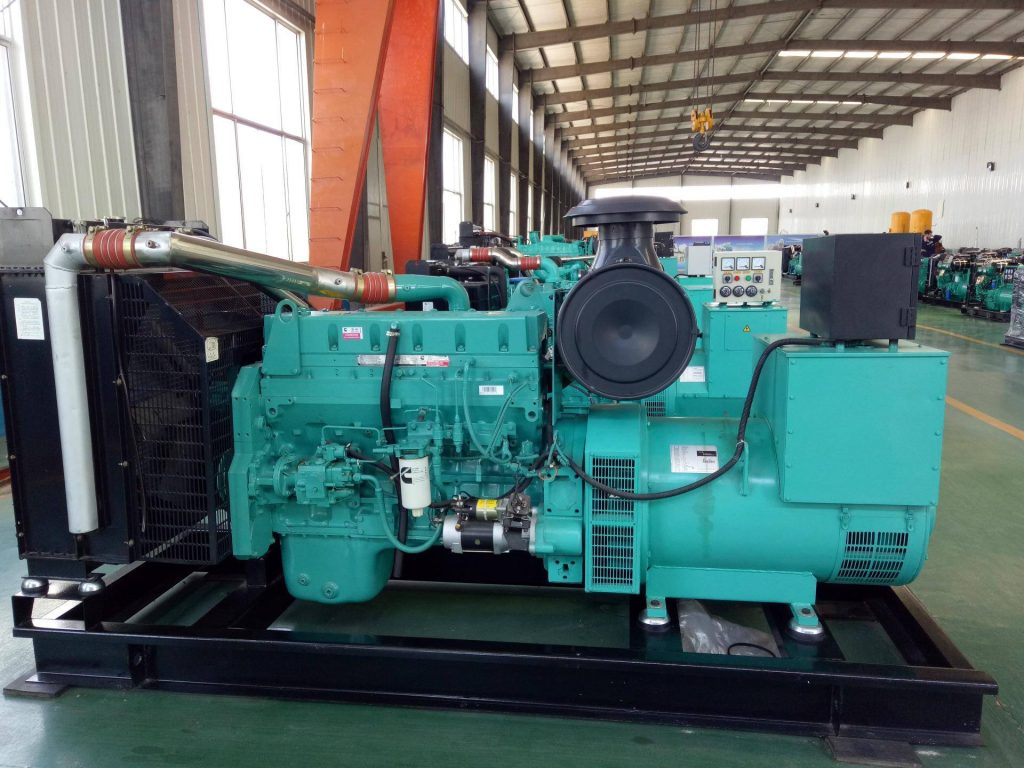Introduction
Diesel generators play a crucial role in providing backup power supply for various applications, especially in situations where a reliable grid connection is not available or in remote areas where electricity supply is intermittent. One of the key advantages of diesel generators is their ability to handle variable load demands efficiently. In this article, we will explore the working principle of diesel generators, their applications for variable load demands, and the factors to consider when selecting a diesel generator for such requirements.
300kw diesel generator for remote manufacturing of Diesel Generators
Diesel generators are a type of combustion engine that converts diesel fuel into mechanical energy, which is then transformed into electrical energy through an alternator. The basic components of a diesel generator include the engine, alternator, fuel system, cooling system, exhaust system, and control panel.
The engine is the heart of the diesel generator and is responsible for converting the chemical energy of diesel fuel into mechanical energy through combustion. The alternator, also known as the generator, converts the mechanical energy produced by the engine into electrical energy. The fuel system delivers diesel fuel to the engine for combustion, while the cooling system helps regulate the engine temperature to prevent overheating. The exhaust system removes the combustion gases from the engine, and the control panel manages the operation and monitoring of the generator.
Variable Load Demands and Diesel Generators

Variable load demands refer to situations where the power requirements fluctuate over time. This can occur in various applications such as construction sites, events, remote facilities, and industrial processes. Diesel generators are well-suited to handle variable load demands due to their ability to adjust their output based on the power requirements.
In scenarios where the load demand is constantly changing, diesel generators can ramp up or down their power output to match the load requirements. This flexibility makes diesel generators ideal for applications where a stable power supply is essential, regardless of the fluctuating load demands.
Applications of Diesel Generators for Variable Load Demands
1. Construction Sites: Construction projects often require temporary power supply for tools, equipment, and lighting. Diesel generators are commonly used on construction sites due to their portability, reliability, and ability to handle varying power demands as different tools and equipment are used throughout the project.
2. Events: Outdoor events such as concerts, festivals, and sports competitions require reliable power supply for stage lighting, sound systems, food stalls, and other equipment. Diesel generators are preferred for such events as they can easily cater to the varying power needs of different activities taking place simultaneously.
3. Remote Facilities: Remote facilities such as mining sites, oil rigs, and telecommunications towers rely on diesel generators for continuous power supply in locations where grid connection is not feasible. These generators are capable of adapting to the changing power demands of the facility, ensuring uninterrupted operations.
4. Industrial Processes: Industries with fluctuating power requirements, such as manufacturing plants and data centers, employ diesel generators as backup power sources to support critical operations during grid outages or peak demand periods. The generators can quickly respond to the load variations, maintaining a stable power supply to prevent disruptions.
Factors to Consider When Selecting a Diesel Generator for Variable Load Demands
1. Power Output Range: When choosing a diesel generator for variable load demands, it is essential to consider the power output range of the generator. The generator should be capable of adjusting its output to match the fluctuating load requirements without overloading or underloading the engine.
2. Fuel Efficiency: Diesel generators are known for their fuel efficiency, but the efficiency may vary depending on the load demand. Select a generator that offers optimal fuel efficiency across a wide range of power outputs to minimize operating costs.
3. Load Testing Capabilities: Some diesel generators come equipped with load testing features that allow operators to simulate varying load demands and assess the generator's performance under different conditions. This capability can help ensure that the generator can handle the required load variations effectively.
4. Remote Monitoring and Control: Remote monitoring and control systems enable operators to monitor the generator's performance, adjust settings, and receive alerts in real-time. This feature is particularly useful for applications with variable load demands, as it allows for proactive maintenance and troubleshooting to prevent downtime.
5. Durability and Reliability: Choose a diesel generator from a reputable manufacturer known for producing high-quality, reliable equipment. The generator should be durable enough to withstand continuous operation and varying load demands without compromising performance.
6. Maintenance Requirements: Regular maintenance is essential to keep a diesel generator in optimal condition, especially in applications with variable load demands. Consider the maintenance requirements of the generator, including service intervals, spare parts availability, and technical support from the manufacturer.
Conclusion
Diesel generators are versatile power sources that excel in meeting variable load demands across a wide range of applications. Their robust construction, fuel efficiency, and ability to adapt to changing power requirements make them indispensable for industries and facilities that require reliable backup power supply. By understanding the working principles of diesel generators, their applications for variable load demands, and the factors to consider when selecting a generator, operators can ensure a stable and uninterrupted power supply in dynamic operating environments.
